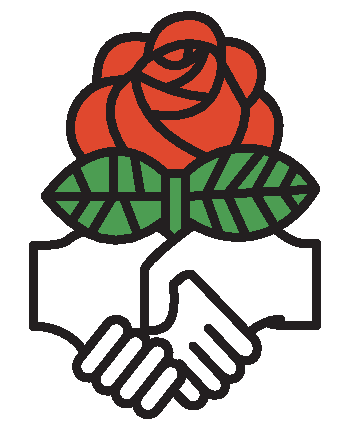Violence against women – an extreme expression of inequality
Madrid, Spain, 4-5 February 2004
Resolution
There is no country in the world where women and men have equal status and opportunities. According to the various United Nations reports on human development, women all over the world suffer, to different degrees, discrimination just because they are women. Violence against women is a world-wide phenomenon resulting from profound inequality and is one of its most serious manifestations.
The 1993 UN World Conference on Human Rights established that violence against women endangers the fundamental rights, individual freedom and psychological and physical integrity of women. Articles 1 and 2 of the UN Declaration on the Elimination of Violence Against Women specify that ‘violence against women means any act of gender-based violence that results in, or is likely to result in, physical, sexual or psychological harm or suffering to women, including threats of such acts, coercion or arbitrary deprivation of liberty, whether occurring in public or in private life’.
SIW commends the World Health Organisation for having drawn up the World Report on Violence and Health (October 2002): this first comprehensive review of the problem of violence presents information on violence as a global public health problem. By publishing this report WHO also supports and underpins the work and findings of the Special Rapporteur on Violence against Women.
Inequality between men and women is the cause of violence against women, and it is social structures themselves which legitimise these acts, whether they take place within the family or the community. In saying that violence against women is a consequence of this social model, we are also saying that an end to this violence will only be possible when this model changes, when relationships of domination no longer exist and equality between men and women is secured. Therefore national governments must accept responsibility for this model and for changing it. They must intervene by all means at their disposal to prevent violence and protect its victims.
In some parts of the world women are cruelly treated and even executed for allegedly conducting extra-marital relationships or for giving birth to illegitimate children – often as the result of rape or gang rape. In many countries, countless numbers of women are targeted as victims of torture and murder, which SIW considers blatant cases of femicide.
Violence against women, like inequality between men and women, takes many forms. One of these is violence perpetrated within the family. According to the World Health Organisation, almost half of women who are murdered are killed by their current or former husbands or partners, a figure that rises to 70 per cent in some countries. Furthermore, one in every four women is a victim of sexual abuse by her partner at some time in her life.
We stress that, beyond the personal responsibility of the perpetrators of these acts, governments also hold some responsibility since they have failed to take due care in protecting these women. This is clearly recognised in the UN Declaration on the Elimination of Violence Against Women. Governments should therefore promote comprehensive legislation which tackles the phenomenon in all its complexity.
Being conscious that violence against women takes different forms, many of which directly affect young girls, we wish to denounce the grave situation of those millions of girls who every year suffer genital mutilation. We also denounce the gender-based selection of foetuses, forced abortions and the infanticide of baby girls.
In the United Nations Population Fund report of September 2000 it is stated that four million women and girls are bought and sold every year for one of three purposes: prostitution, slavery or forced marriage, and that every year two million girls are brought into the sex trade.
Trafficking in women and girls is a violation of human rights and directly related to socio-economic causes and gender inequality, to restrictive immigration policies and to poverty. In order to combat it, therefore, we must adopt a multidisciplinary approach, with the participation of all those involved and cooperation at national and international level and between the countries of origin, transit and destination.
Violence against women implies, inevitably, the subordination of women. This violence directed against women just because they are women is born of social structures and reproduced in all areas of society, from the family itself to institutional practices. Eradicating this violence must be a major goal of international organisations and national governments in so far as it is an issue of human rights.
Socialist International Women therefore:
- calls for national governments to ratify all instruments for the protection and promotion of women’s rights, in particular the Rome Statute and the Convention on the Elimination of All Forms of Discrimination Against Women and, where necessary, to withdraw reservations they have entered and to sign and/or ratify the Optional Protocol to the Convention;
- calls for all national governments to introduce comprehensive legislation against violence against women. Governments must tackle all aspects of the problem, from prevention to education, social awareness, the improvement of political and legal systems, the effective protection of victims and reparation and comprehensive compensation for harm. Finally legislation must be introduced to enable the banning of perpetrators of domestic violence from their homes;
- calls for all national governments to introduce comprehensive legislation to make rape – including rape committed by law enforcement personnel – a criminal offence where it is still considered a misdemeanour, and to make systematic rape a war crime and ensure that the perpetrators are prosecuted by the International Criminal Court established by the UN;
- stressesthe need for national governments to allocate the necessary resources to combating violence against women in all its aspects and establishing comprehensive programmes for the care and protection of victims. Efforts and progress made in this context should be made a criterion for the evaluation, by both donors and recipients of funds, of development cooperation projects and programmes;
- notesthe need for collaboration with civil society and women’s organisations which have expertise in this matter and urges governments to establish close cooperation with these bodies, based on autonomy, recognition and mutual respect;
- calls forthe eradication of trafficking in women and girls to be a major aim of government policy and for the struggle against it to be a comprehensive one, involving the active pursuit of organised crime, raising social awareness, caring for and supporting victims, as well as providing witness protection programmes for women giving evidence in court against traffickers;
- calls onthe Secretary General of the UN to make the prevention of large-scale violence against women and girls and the violation of their rights a priority in the peace and humanitarian interventions of the United Nations, to make available the resources to prevent such violations in all international, regional and local conflicts, and to consider the drafting and adoption of a Convention on the Elimination of Violence against Women;
- declares that violence against women must constitute a reason for granting asylum;
- notesthe urgent need for national governments to pass and enforce laws against female genital mutilation, the gender-based selection of foetuses, forced abortions and the infanticide of baby girls, as well as crimes which claim their justification in honour, tradition and religious beliefs.
Finally, Socialist International Women wishes to state the overwhelming need to work for the advancement of women, on the grounds that violence against women can only be eradicated by securing equality between men and women, since its origins lie precisely in inequality, dependence and discrimination.

